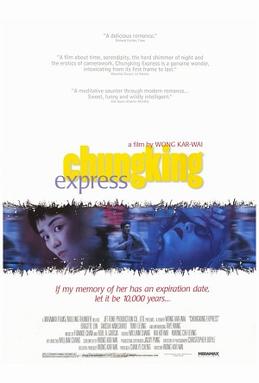 |
| Andy Lau and Tony Leung Chiu-wai in Infernal Affairs |
The spy-vs.-spy thriller Infernal Affairs is also a fable about identity. A young man is chosen by the mob to become a cop and serve as a mole within the police force; another young man is chosen by the cops to go undercover in the mob. After years posing as something they're not, each finds himself at odds with the persona he has assumed, but their lives depend on maintaining that identity, even when they come face to face. Co-directors Andrew Lau and Alan Mak keep this intricate and potentially lethal dance going to the final face-off. Though on a first viewing it's sometimes hard to keep straight who's ratting on whom and how and about what, the star charisma of Andy Lau as the mob's spy and Tony Leung Chiu-wai as the undercover cop gives the movie the drive it needs, with solid support from Anthony Chau-Sang Wong as the police inspector and Eric Tsang as the mob boss. It's a cleaner and leaner film than Martin Scorsese's Oscar-winning 2006 remake, The Departed.






